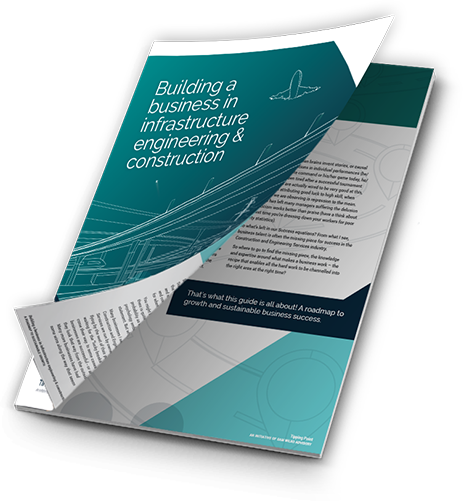You’ve most probably noticed the proliferation of Corporate project-specific Joint Ventures that have appeared over the last few years – a reflection of the size, complexity of scope and sheer number of major projects that have come to market during this extended boom in Engineering and Construction.
More rare than these ‘’partnerships of convenience’’ are the formalised joint business relationships targeting multiple industry opportunities. The most successful of these have stood the test of time, providing ongoing opportunities and new sources of revenue that neither party could easily access by themselves.
So how are valuable business relationships formed and sustained? As a starting point you might refer to my e-Book for a simple but very effective 4-step process – based on a “dinner party” analogy - that can be applied to businesses of any size in developing what are termed Distribution relationships:
- Step 1: "Match" meeting – this first step is about establishing whether there's potential compatibility between the parties as well as complementary offerings (remember, people will only willingly do business with those that they know, like and therefore trust!)
- Step 2: "My Place" – this comprises inviting your potential partner for a visit to your business premises (just like when you meet potential new friends, they will be curious about what your place looks and feels like as a reflection of who you are and what your business stands for)
- Step 3: "Your Place" – receipt of a return invitation is a good sign that Step 2 has been successful (you now have an opportunity to satisfy your own curiosity about what their business looks and feels like)
- Step 4: “Agreement” - now's the time for both parties to explicitly acknowledge the respective expectations of the proposed relationship in writing!
In marketing terms, Distribution is the process of moving a product/service from its (few) production sources to its (many) clients/customers. In this instance the concept of distribution has been extended to be about creating mutually beneficial relationships, be they formal or informal, that reliably generate business for the parties to the relationship. Distribution relationships act as effective channels to market, providing referrals and pre-sold work that maintain a steady flow of client and customer activity.
Three fundamental principles separate effective from dysfunctional Distribution relationships:
- Each business offers something of real value to the other party and to the target opportunities / clients. Often businesses enter into partnerships because they don’t feel they offer enough value on their own. Coming from this place rarely creates a mutually beneficial venture. Each business needs to be clear on their specific value brought to the table.
- Both parties are crystal clear on the Why for the relationship. Honesty at the outset is vital about why each party is interested in creating a partnership and what each is looking for in a partnership. As a representative of your business you need to spend the time understanding the why of your potential partner. The initial answers to your inquiries may not be clear, particularly if the partnership is a “one-off” reaction to a short notice bid opportunity. Listen carefully to what the other party is saying. Do you have the right chemistry and a shared vision to make this relationship mutually beneficial? Don’t formalise the relationship until your questions are answered completely and you're confident this relationship will be profitable and beneficial to you both.
- At their core, great relationships are about abundance rather than scarcity – being prepared to give to rather than take from the relationship. But from where does this orientation stem? It actually comes from explicitly establishing shared behavioural norms that align with the parties’ respective expectations. There may be times during the course of the relationship where the short-term interests of the individual businesses will need to be sacrificed to the benefit of the partnership. What this looks and feels like needs to be explored up front, rather than after a crisis materialises.
Sustainable Distribution relationships pay close attention to explicitly acknowledging and addressing any fears retained by either party at every step in the process of building the relationship. The following fears, left unresolved, will guarantee eventual failure of the relationship:
- Integrity (Trust and Credibility – will/does this business treat our client like we do?)
- Control (potential loss of – are both parties clear and accepting of whether one or both parties controls the client relationship(s)?)
- Quality (will the quality of work/outputs from both parties match the client or customer’s expectations?)
- Consistency (does the client or customer experience provided by both parties align?)
- Time (do both parties have sufficient time and resources to devote to the relationship?)
Successful relationship development is a lifelong business challenge with manageable risks but potentially great rewards in terms of new sources of growth and diversification.
Let me know if you would like to have a conversation about partnering opportunities – all it will cost you is a good cup of coffee!
